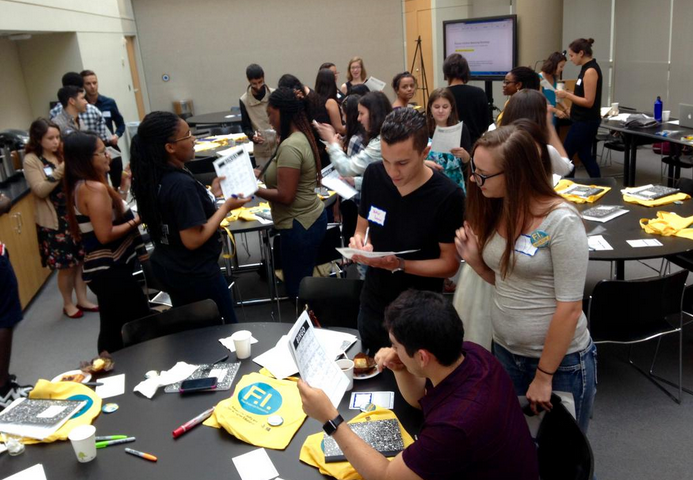
This Week: Justice and Equality at the University
Each week, a member of the JITP Editorial Collective assembles and shares the news items, ongoing discussions, and upcoming events of interest to us (and hopefully you). This week’s installment is edited by Renee McGarry.
This month the HASTAC project The University Worth Fighting For deals specifically with classroom pedagogies of equality and invites readers to comment on how they move toward more equal pedagogies in their own classroom practices. The initiative also hosted a live-streamed workshop on August 28, which was recorded and can be followed on Twitter at #fight4edu. Future months will deal with other issues facing the university of the 21st century, hopefully including the broader themes I discuss below.
In her opening essay, Futures Initiative fellow Danica Savonick asks, “What would a classroom look like if it were designed not to reproduce traditional hierarchies of privilege and power, but instead to produce justice and equity?” I’d like to make one simple change to this question to reframe the conversation: “What would a classroom university look like if it were designed not to reproduce traditional hierarchies of privilege and power, but instead to produce justice and equity?” Because while what we do in our classrooms matters, it matters less and less if the neoliberal university continues to reproduce power structures that disempower students and faculty while empowering administrators and donors in a way that interferes with teaching, learning, and research. It’s important that we develop a classroom dynamic “in which those historically marginalized and dispossessed by the social order can instead thrive and flourish” but we also must recognize that those in the front of the classroom may be, and increasingly should be, a part of the same historically disempowered groups and that the ways in which instructors (tenure-track and contingent alike) are associated with and participate in the neoliberal university are diverse and oftentimes involuntary.
And while I’m heartened by the focus on pedagogy in the past decade, we also need to address very concrete problems that come with it: the division this creates within universities between those who “care about” teaching and those who “don’t”, the feminization of this particular kind of labor and the association of women with teaching and its associated emotional labor, a divide between teaching schools where pedagogy is foregrounded and oftentimes more elite schools where it isn’t, and the fact that for most instructors – over 50% of them in fact – revising teaching methodologies and classroom structures is completely unpaid labor, as the neoliberal university continues to hire contingent instructors with no job security and pay them (often too little) by classroom hours. Our classrooms are microcosms of higher education, and the direction of higher education matters for our classrooms. When thinking about equality I encourage instructors to think narrowly about our classrooms, but also broadly about the system in which our classrooms exist. As the director of the Futures Initiative, Cathy Davidson, said during the workshop, “The only way you can counteract structural inequality is by structural equality.” This fight is multifaceted. We are rapidly losing the battle for a system that empowers faculty and students, and classrooms that aim for for equality can provide a three hour break for students and faculty alike, but it’s oftentimes just a break from a system that churns on without their well-being in mind.
- The Reason You Saw the Virginia Shooting Video Even If You Didn’t Want To
- How to Stop Autoplay on Facebook and Twitter (If you’re asking/requiring students to use social media in your classroom please share this with them.)
- Grasping at the Root Conference (with readings)
- Occupy the Syllabus
- Teaching Machines and Turing Machines: The History of the Future of Labor and Learning
- “In all things, all tasks, all jobs, women are expected to perform affective labor – caring, listening, smiling, reassuring, comforting, supporting. This work is not valued; often it is unpaid. But affective labor has become a core part of the teaching profession – even though it is, no doubt, “inefficient.””
- Grief Work
- “Despite the tech-speculative fiction that posits a future of leisure, the future of work, so it seems, will increasingly be contingent, precarious; and as such, it’s hard to see how it will be anything other than an unhealthy one – physically, mentally.”
- And from the archives: A 2008 poster and educational tool designed by Jesse Goldstein, David Spataro, and Stephen Boatwright for the CUNY Adjunct Project that hits at the heart of the impact of the marriage of capitalism and higher education on CUNY classrooms



'This Week: Justice and Equality at the University' has no comments
Be the first to comment this post!